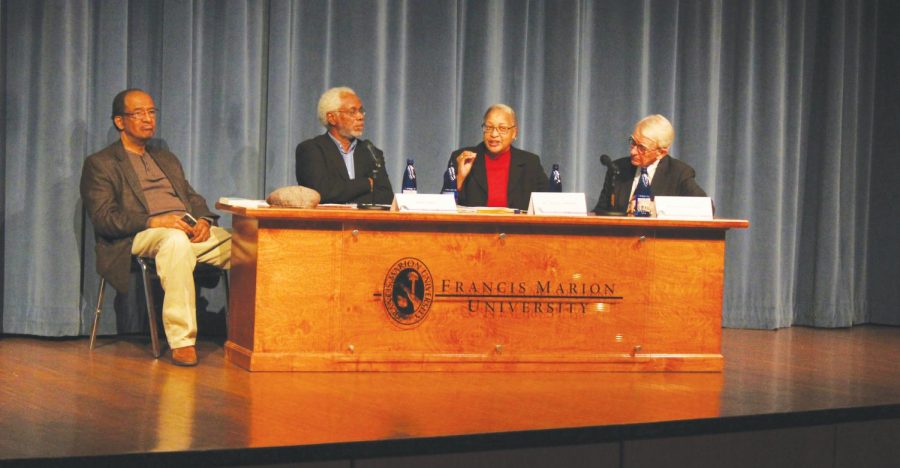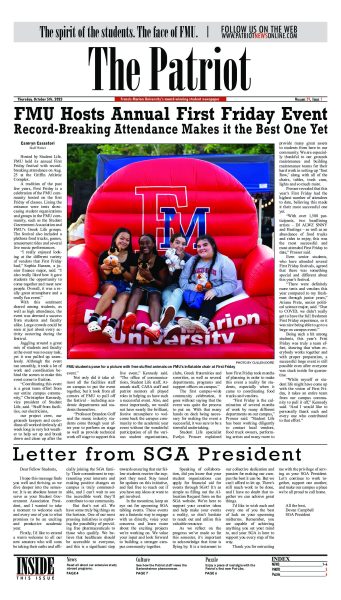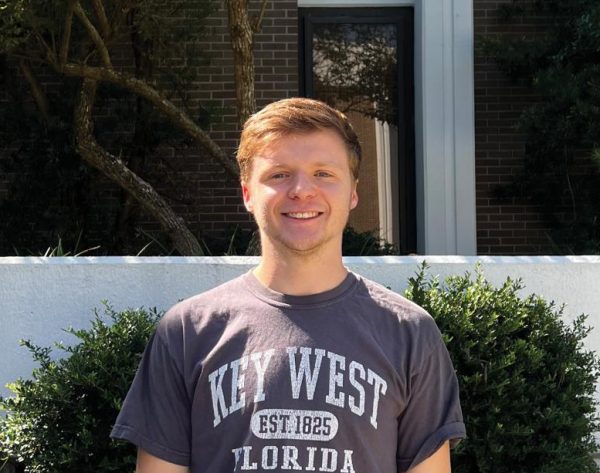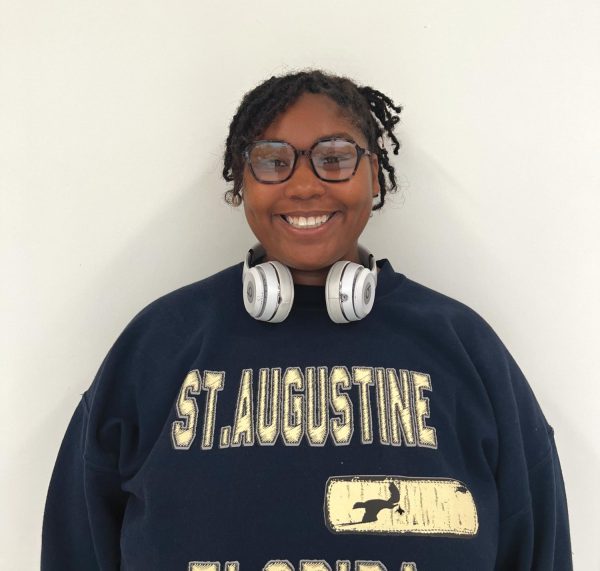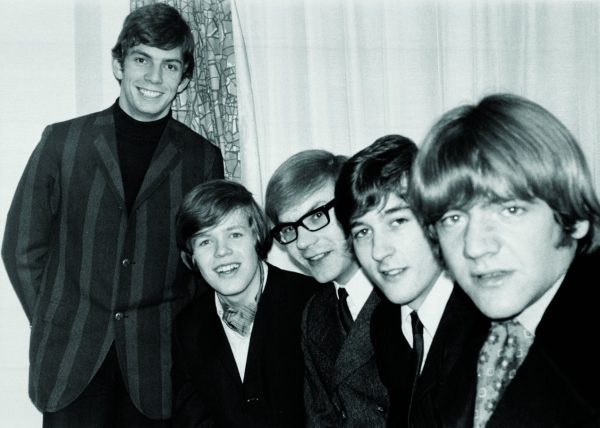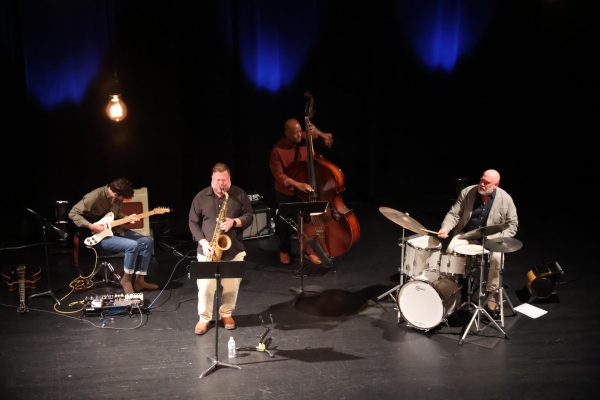FMU hosts three-day symposium
Speakers discuss racial injustice, education
Photo by: Kyle Graham
Panelists Herb Frazier, Valinda Littlefield and Joe Riley discuss Cleveland Sellar’s discussion on race, culture and education on Feb. 28. Audience members asked panelists questions after the event.
FMU hosted its first three-day symposium titled “Beyond Mother Emanuel and the Confederate Flag”, sponsored by a grant from South Carolina Humanities, discussing the topics of race and culture with keynote speakers and panel discussions throughout the event from Feb. 26-28.
Each session had a specific theme and began with a keynote speaker who is a South Carolina activist, artist or educator which was followed by a panel discussion. The theme for the first session was “politics, policy and symbols,” the second session was “art, community and theory” and the final theme was “race, culture and education.” Panel members included state representatives, politicians, clergy, artists or academics who encouraged audience members to ask questions.
For Wednesday’s session, keynote speaker Cleveland Sellars told audience members how he participated in numerous civil rights events and marches for nearly 30 years before completing his undergraduate, master’s and doctorate degrees. Sellars also told the audience stories of how he participated in the march from Selma, Ala., to Montgomery, Ala., led by Dr. Martin Luther King Jr. after becoming the Student Non-Violent Coordinating Committee’s director in 1964 at Howard University.
Sellars enrolled at Howard University in 1962, after attending Voorhee’s College, and helped arrange for Malcom X to speak at the university and for black Mississippians to meet with their congressmen. Sellars also told audience members how he helped organize a protest of segregated bowling alleys in 1968 in Orangeburg, S.C., which resulted in the killing of three South Carolina State students by South Carolina Highway Patrol officers. Sellars spent seven months in prison after this incident, which became known as the Orangeburg Massacre, and was eventually pardoned.
“If we don’t know this history, we are doomed to repeat it,” Sellars said. “We’re just about at 1953 in 2018. We have to recognize that in order to get out of the hole we are in… I was growing up in a time where there was segregation. It’s crazy, but there are rules that go along with it.”
Sellars used the example of sidewalk etiquette to explain the rules of segregation to audience members. He said if he was walking down the street and came up on a white family, he had two options: one was to get off the street entirely to let them pass or he would cast his eyes down to the ground and not make eye-contact with members of the family.
Sellars also said there were penalties for African-American’s who did not abide by these rules, such as being arrested or disciplined.
Sellars went on to talk about George Stiney, Emmett Till, freedom rides, the murders of Cheney, Goodman and Schwerner in 1964 and other stories from his past to put racism into perspective.
“All people have to develop a social consciousness and it comes from different kinds of things,” Sellars said. “You can see the type of social consciousness I’m talking about in the young person in the students at Parkland. We have to do something to keep this kind of thing from continuing to happen.”
In June 2015, nine people were murdered at Mother Emanuel African Methodist Episcopal Church in downtown Charleston, S.C. by white supremacist Dylann Roof. The loved ones left behind by those murdered and the citizens of the city of Charleston responded in a way to set the example of responding to hate with compassion and dignity, rather than fighting hate with hate. Nearly one month after the massacre, the Confederate flag was removed from the South Carolina Statehouse grounds after a 54-year presence in Columbia.
Coordinator of Orientation and Admissions Events Stephanie Bosch attended the event which Sellars spoke. Bosch, a Charleston native, said listening to Sellars share his experience as a civil rights leader was humbling and her biggest takeaway of the event. She said she was particularly moved by his calm, yet passionate, demeanor on stage while telling stories and showing his slideshow.
Bosch said the shooting was especially hard for her to comprehend not only because she grew up in Charleston, but also because it occurred in such a sacred place where people go to find solace and comfort. She said she believes Charleston set a positive example for the rest of the country in its response to the tragedy as a whole.
“A large event was organized by community leaders to create a unity chain across the Ravenel Bridge after the tragedy occurred,” Bosch said. “I was able to participate in this event with my family and it was a truly moving experience. To be surrounded by thousands of people who peacefully walked the bridge in honor of the victims who lost their lives was humbling.”
Bosch said we have a truly rich and diverse student body and these types of events promote positive conversations within students, faculty, staff and the Florence community. Bosch said she hopes to see more events like this in the future.
